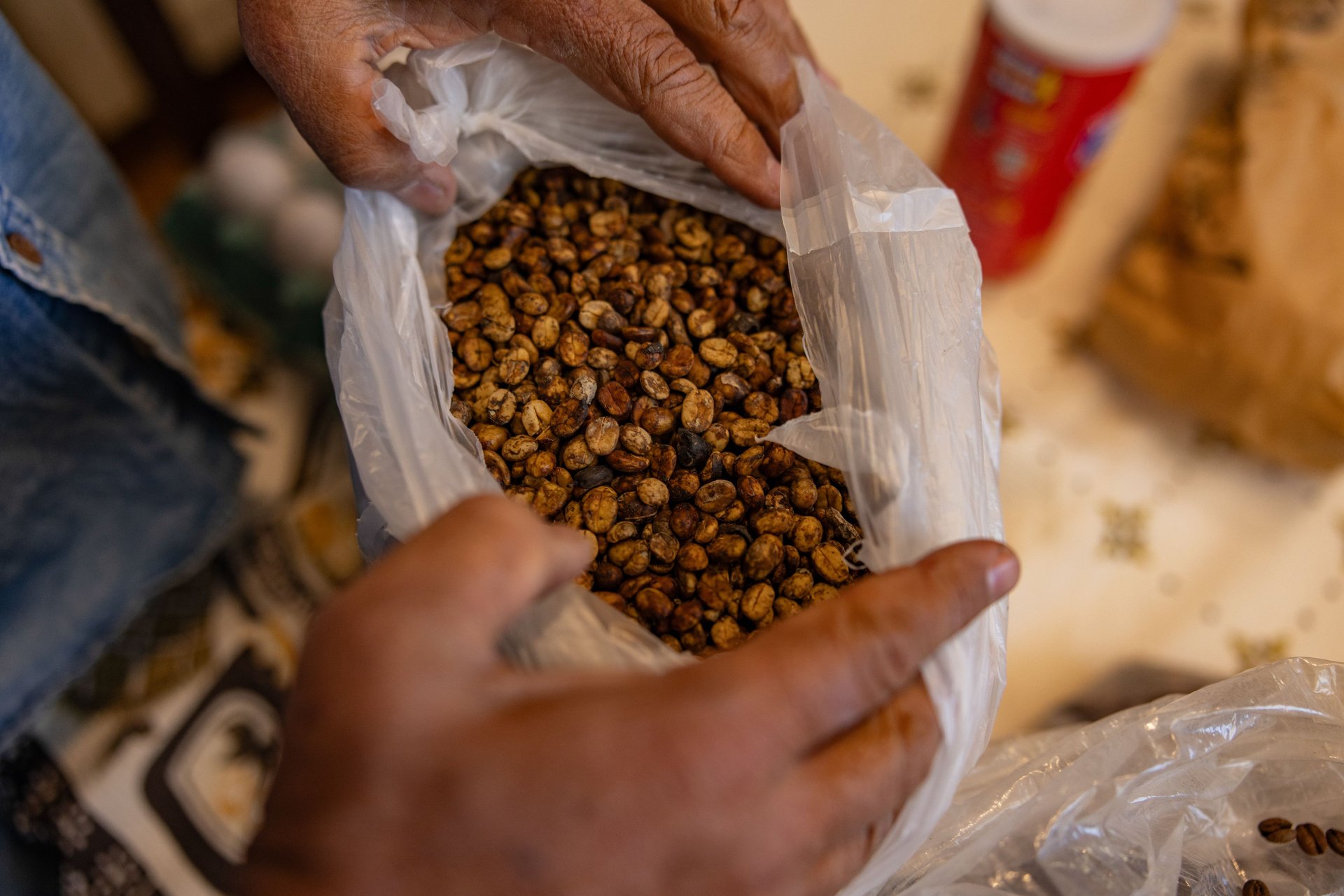Brazil’s coffee prices fell last month. Could Trump’s 50% tariffs rock the industry?
The world's top coffee producer reported a drop in its consumer coffee prices in July after months of inflated prices

Victor Moriyama/Bloomberg via Getty Images
Brazil’s consumer coffee prices dropped in July for the first time in over a year as the world’s largest exporter braces for sky-high tariffs.
Suggested Reading
Prices for consumer ground coffee fell by 1.01% last month, according to data released Tuesday for Brazil’s Broad National Consumer Price Index.
This is the first time coffee prices in Brazil dropped in the last 18 months, Reuters reported, citing the Brazilian Institute of Geography and Statistics. According to the institute, coffee was a large contributor to inflation in the 18 months prior.
Brazil’s drop in coffee prices last month comes as President Donald Trump slapped a 50% tariff rate on imported goods from the country. This rate went into effect on Thursday, which means it wouldn’t have impacted the country’s coffee rate last month — although it still faced a 10% trade tax before the hike.
Still, Trump announced the new tariff rate at the beginning of July, causing further commotion in the market.
In regards to Brazil’s drop in coffee prices last month, the Brazilian institute’s manager Fernando Goncalves told Reuters that “it could be an effect of increased supply, and it's not possible to say or confirm that it's related to the tariff hike. The tariff hike only began this month."
He added that as of now, it's too soon to know whether President Trump’s 50% tariff rate could lower coffee costs. Costs for coffee drinkers in the U.S. are already on the rise.
Brazil leads as the top coffee producer in the world, making up 37% of global production for the 2024-2025 season, according to the U.S. Department of Agriculture; it's also the source of most coffee imported into the U.S., based on USDA data from 2023.
According to a recent analysis by the U.S. Chamber of Commerce — a corporate lobbying group — effective tariffs on coffee and tea for the months of May and June already brought in $245.5 million with about an 8% average tax rate. A year earlier, it was less than 0.30%. And a recent analysis from the Tax Foundation said that following the implementation of new tariff rates, coffee will be one of the food products most impacted and subjected to price hikes.
So far, U.S. businesses have taken on the bulk of tariff-related costs, but Goldman Sachs expects that to soon change for U.S. consumers.
